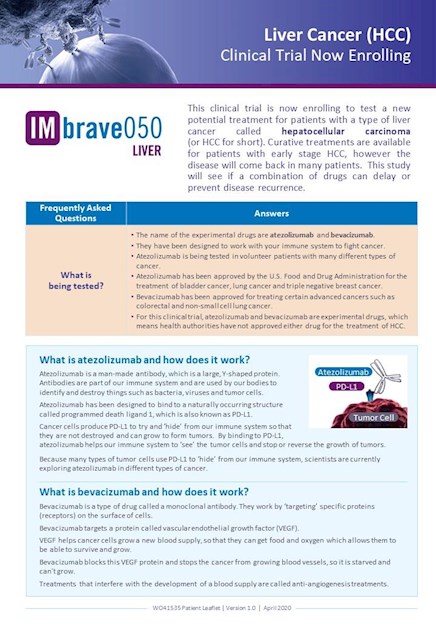This study will compare the effects, good or bad, of atezolizumab plus bevacizumab versus active surveillance (not receiving any study treatment) on patients with completely resected or ablated HCC who are at high risk for disease recurrence
Patients will be put into two groups or Arms of the study:
In Arm A, patients will receive the combination ofatezolizumab plus bevacizumab
In Arm B, patients with be actively monitored but will not receive any study treatment
HCC patients entering this study will have had their initial cancer completely resected (cut out) or ablated (destroyed). However, It is likely that at some time in the future their cancer could return.
So the question for this study is: does treatment with atezolizumab and bevacizumab prevent or delay the recurrence of cancer in comparison to patients who receive no active treatment?
Learn more here: clinicaltrials.gov/ct2/show...
